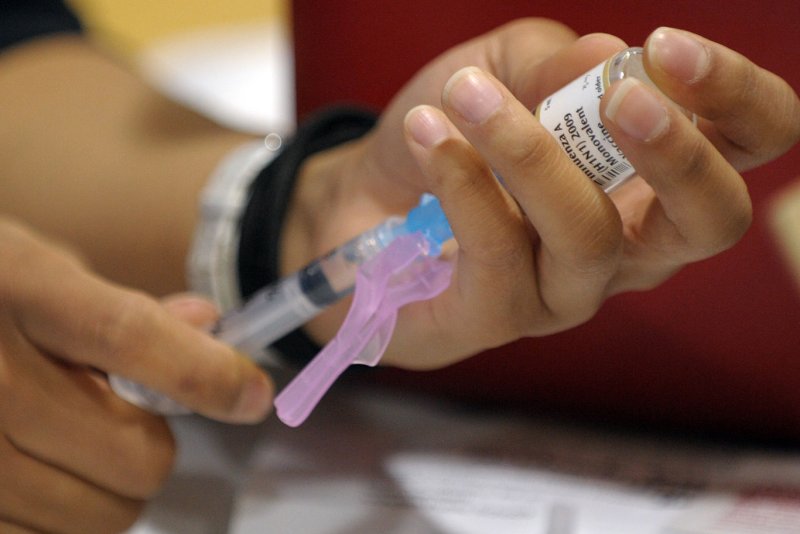A nurse prepares a shot of H1N1 Flu vaccine for a patient. According to a new survey, almost two thirds of Americans have heard the theory that vaccines cause autism and nearly 20 percent believe it. UPI/Roger L. Wollenberg |
License Photo
Do you believe that vaccines cause autism or that GMOs are being used to shrink the world’s population? Or that the government is preventing access to alternative medicines to benefit Big Pharma? That the government knows cell phones cause cancer but do nothing to stop it? That water fluoridation is suspicious? Or that the CIA infected African Americans with HIV?
According to a study released Monday by researchers at University of Chicago, some 49 percent of Americans believe at least one of these medical six conspiracy theories to be true.
The study, published in JAMA Internal Medicine, questioned 1,351 adults in an online survey, asking whether they have heard of each of the above theories and whether they agreed or disagreed.
The survey also found that people who believed in conspiracies were more likely to seek out alternative medicine, with only 13 percent of nonbelievers taking herbal supplements compared to 35 percent of conspiracy believers.
Among those who believed conspiracies, 35 percent identified as liberal and 41 percent identified as conservative.
"Although it is common to disparage adherents of conspiracy theories as a delusional fringe of paranoid cranks, our data suggest that medical conspiracy theories are widely known, broadly endorsed, and highly predictive of many common health behaviors," the researchers write.
J. Eric Oliver, the study’s lead author, accounted for people’s beliefs by explaining that it may be easier to accept these theories than a more complex and ambiguous explanation, and that many people turn to family and friends for trusted information rather than doctors. "Public mistrust is understandable."
"The world is a complicated place," Oliver told NPR. "It's difficult to make sense of it. A lot of these conspiracy theories are intuitively compelling."
[JAMA]
[NPR]















